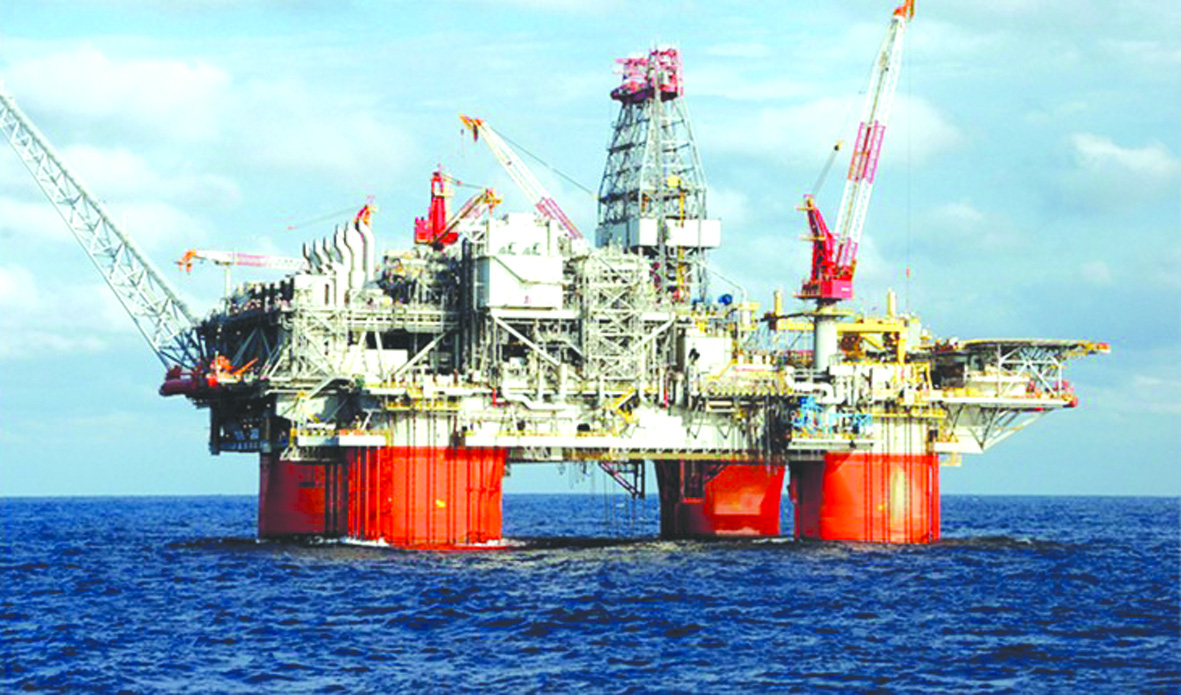[tweet][digg][stumble][Google][pinterest][follow id=”DER29709692″ size=”large” count=”true” ]
Stakeholders in the Nigerian oil and gas sector brainstorm on the threat of offshore security to the sector and suggest the way out the problem
By Pita Ochai
The threat of offshore security to the oil and gas sector in Nigeria has become a major concern to operators in the industry. Participants at a recent summit on offshore security in oil and gas, held at the Eko Hotel and Suites, Lagos, noted that the Nigerian offshore domain is fraught with increasing threats, casting a shadow on players’ operations and the country’s potential to attract investment into its oil and gas industry. According to them, the threats to offshore assets in the country include piracy, sea robbery, oil theft, illegal bunkering, smuggling, proliferation of small arms, among others.
Nigeria’s offshore domain is one of the most fertile hydrocarbon provinces in the world. Current oil reserve in the country is estimated at 35 billion barrels and over 187 trillion cubic feet of natural gas reserves.
Following the insecurity on drilling rigs, some major international oil companies operating in the country have suspended their activities and many have moved deeper offshore, where the risks are very minimal. Major offshore oil and gas assets in the country include Agbami with daily production of 250,000 barrels per day (bpd), Bonga (200,000 bpd), Usan (180,000bpd), and the 125,000bpd Amenam/Kpono field.
According to the International Maritime Bureau (IMB), Nigeria topped the list of countries in the Gulf of Guinea where piracy and sea robbery held sway in 2013. It noted that Nigerian pirates moved further afield last year and ventured far into waters off Gabon, Ivory Coast and Togo, where they were linked with at least five of the region’s seven reported vessel hijackings. In its annual report, IMB revealed that “Nigerian pirates and sea robbers accounted for 31 of the region’s 51 attacks, taking 49 people hostage and kidnapping 36, more than in any year since 2008”.
Industry experts, who converged on Lagos for the Offshore Security in Oil & Gas Summit, organised by India-based Nispana Innovative Platforms, highlighted the urgent need to put in place a comprehensive policy and strategy and take concerted action to protect the abundant offshore assets in the country.
Offshore security in oil and gas has since the 9/11 terror attacks in the USA become a major political-economic concern for many governments in the contemporary world, especially in the oil-rich Gulf of Guinea, said Okechukwu Ogbonna, international criminologist consultant, Kofi Anan International Peace Keeping Centre.
Experts are of the view that lack of a critical infrastructure protection policy and strategy, limited maritime domain awareness, inadequate Naval presence, poor cooperation and coordination among maritime agencies, poor fleet support facilities and poor funding are major factors militating against the protection of offshore assets in the country.
While noting that the Nigerian Navy had for many years been able to cope adequately with the responsibility of protecting the nation’s offshore resources, Rear Admiral James Dele Oladimeji said the nation has suffered huge economic losses in the maritime domain due to insecurity and various vices in recent years. This, he said, is due to the changing security landscape that has emerged since the end of the Cold War coupled with increased economic activities in the maritime domain and other domestic problems.
In 2004, Nigeria lost about $105 million to oil theft alone, said Oladimeji, adding that in 2009, oil production in the country dropped by 20 percent as a result of piracy, sea robbery and other attacks. “If this vice is not checked by adequate naval presence and other solutions in the maritime domain, it could undermine the national security in the near feature,” he said. He therefore called for a comprehensive policy and strategy to protect offshore assets, joint efforts of the maritime agencies and increased funding.
Ifeyinwa Anazonwu-Akerele, director general of Nigerian Chamber of Shipping, who noted that the Gulf of Guinea, which includes waters off Nigeria, has been tagged ‘the most dangerous in Africa for merchant’ due to piratical activities, said insurance premium to such troubled areas have increased astronomically. “In some instances, goods meant for the Nigerian ports have had to be diverted to Benin Republic or even Togo just as the insurance premium paid on Nigerian bound ship has gone up. We need a full-fledged commitment to raise awareness and prevent further expansion of maritime piracy in the country. More stringent actions should be taken to deter culprits,” Anazonwu-Akerele said.
Warredi Enisuoh, captain and acting director, Shipping Development and Operations at the Nigerian Maritime Administration and Safety Agency (NIMASA), said the agency had signed a Memorandum of Understanding (MoU) with the Air Force, the Navy and the police to curb the menace, adding that a piracy bill has been sent to the National Assembly.
Large scale oil theft and other security challenges have prevented Nigeria, Africa’s top oil producer, from producing up to its optimum estimated capacity of 3.2 million bpd, depriving the country of potential revenue. Nigeria’s crude oil production averaged 2.26 million bpd in the first quarter of this year, according to data recently released by the National Bureau of Statistics. Oil output was 30,000 bpd lower than average production of 2.29 million bpd in the corresponding period last year. According to the Nigerian National Petroleum Corporation (NNPC), the country’s current oil production, which was put at over 2.3 million bpd, is expected to rise further as the government clamps down on oil theft and sabotage attacks on production facilities.


